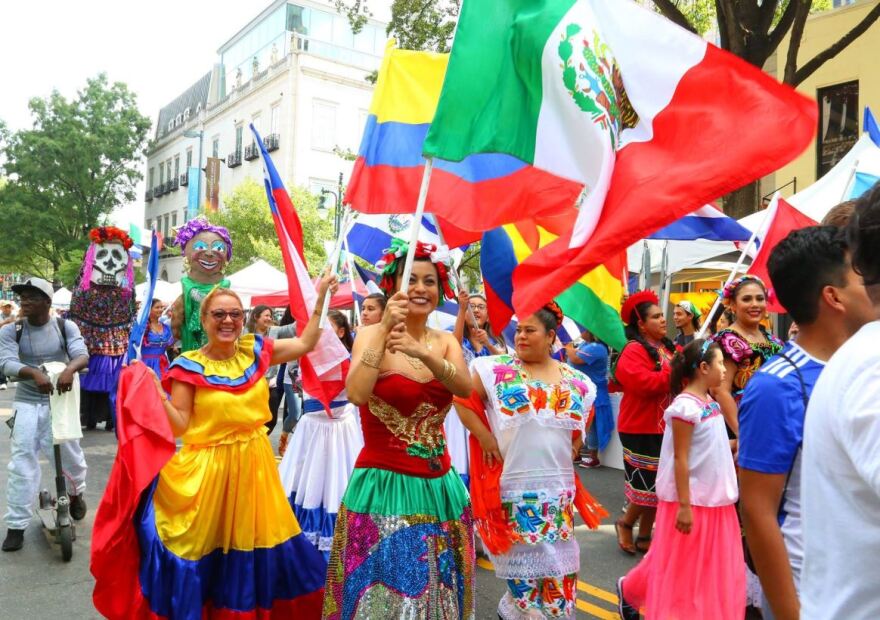It’s not too late to celebrate National Hispanic Heritage Month. In addition to the many events around town marking the month-long celebration, there are other ways to appreciate the richness of the Latino culture.

Mecklenburg County alone is home to about 148,000 Hispanic residents, many of whom prefer to be referred to as Latino or Latinx.
Eric Hoenes is one of them. He came to the United States from Guatemala as a child. Now an assistant professor of Religious Studies and affiliated with the Latin American Studies Program at UNC Charlotte, he offers advice for learning to appreciate a culture that may be foreign to you.
“Get out and explore…. This is the kind of city where people can come together, so get out there and check out the restaurants. Go see what’s on the menu. Ask people about their dishes,” he says.
The easiest place to start: "Check out the Salvadorian and Guatemalan bakeries," he said.
Hoenes says one the things that made Charlotte feel like home was discovering there were other people in the city who had also come here from Central America. Hoenes recognized right away that the tamales at Panaderia El Quetzal and their sister restaurant, Guatelinda, were authentically Guatemalan – and so were the proprietors. Since then, he’s guided friends and neighbors through the menus at multiple excursions to both places.
National Hispanic Heritage Month officially runs from Sept. 15 to Oct. 15. In the Queen City, the festivities will culminate in the giant Hola Charlotte Festival in uptown on Saturday, October 12. The free event, which started as a small gathering eight years ago is expected to attract about 60,000 attendees this year. The festival features music, dance demos and activities for kids.
Denise Coleman, one of the organizers, stresses that this isn’t simply a street party for people from Spanish-speaking countries.
“We want everyone to see Latino culture,” she says. For a deeper understanding of what makes each country unique, visitors should make sure to visit the Latin American Cultural Village. This is the showcase for “grassroots groups representing different countries. They’re not big-name organizations, just neighbors who want to meet and showcase their culture, music and traditional dress.”
Food trucks will sell street food known as antojitos. Expect an array of pinchos from Puerto Rico, papusas from El Salvador, tacos from Mexico, empanadas from Colombia and Argentina, and more.
Whether you prefer to samba, sip or just stroll your way through these events in the upcoming weeks, you’ll have lots of choices, including ticketed dance parties, museum programs, and free activities that include a session on Mayan artifacts that’s one of several sponsored by the Charlotte Mecklenburg Library.
Beyond the celebrations, Venezuela native Banu Valladares encourages Charlotte residents to get to know Latinx people – a designation she prefers -- individually.
“One of the biggest losses we experience in the United States is our community. Most Latinx people believe that a healthy community leads to healthy inpiduals – the opposite belief as in the United States, which has a strong focus on the inpidual,” says Valladares, who is executive director of the Charlotte Bilingual Preschool. “We lose our deep connections to our people, our language, our traditions, our tribe and feel very isolated. This is a hard transition.
“Reach out to a recent immigrant and welcome them. Help us feel like we belong,” she says.
Amy Rogers writes WFAEats, a fun adventure where we explore all things tasty and tackle the meatier side of the food scene in and around Charlotte.



